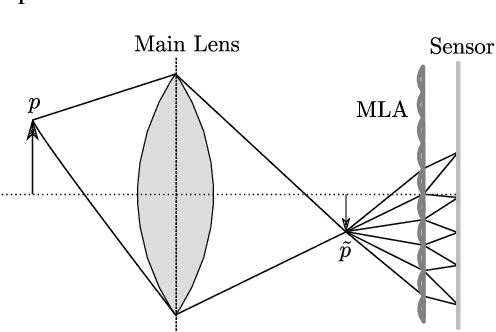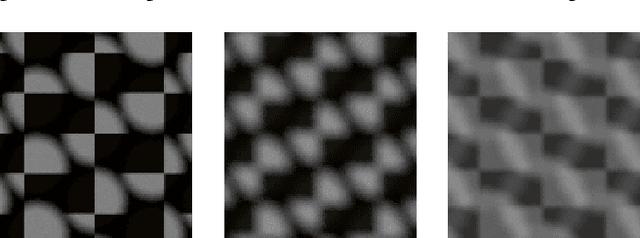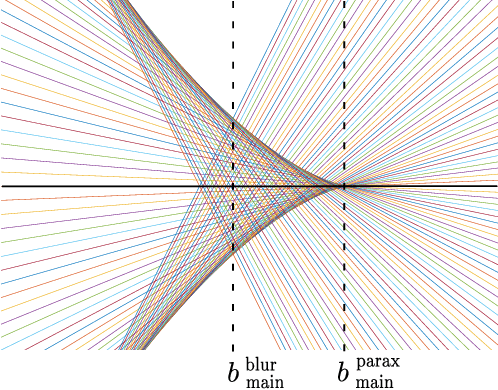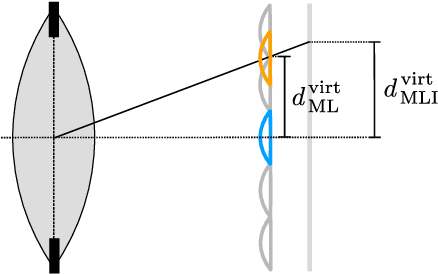Ray Tracing-Guided Design of Plenoptic Cameras
Paper and Code
Mar 09, 2022



The design of a plenoptic camera requires the combination of two dissimilar optical systems, namely a main lens and an array of microlenses. And while the construction process of a conventional camera is mainly concerned with focusing the image onto a single plane, in the case of plenoptic cameras there can be additional requirements such as a predefined depth of field or a desired range of disparities in neighboring microlens images. Due to this complexity, the manual creation of multiple plenoptic camera setups is often a time-consuming task. In this work we assume a simulation framework as well as the main lens data given and present a method to calculate the remaining aperture, sensor and microlens array parameters under different sets of constraints. Our ray tracing-based approach is shown to result in models outperforming their pendants generated with the commonly used paraxial approximations in terms of image quality, while still meeting the desired constraints. Both the implementation and evaluation setup including 30 plenoptic camera designs are made publicly available.
 Add to Chrome
Add to Chrome Add to Firefox
Add to Firefox Add to Edge
Add to Edge